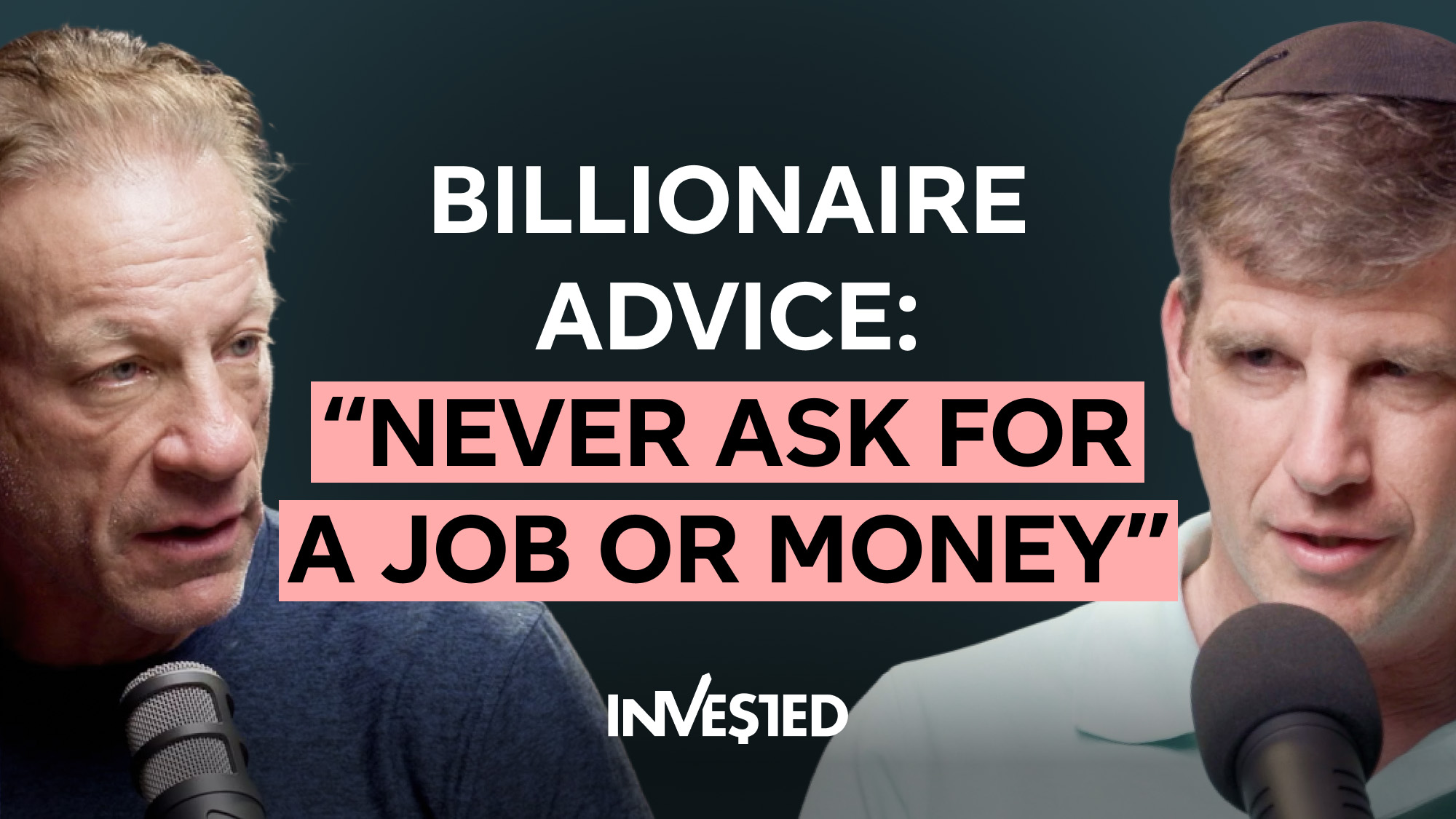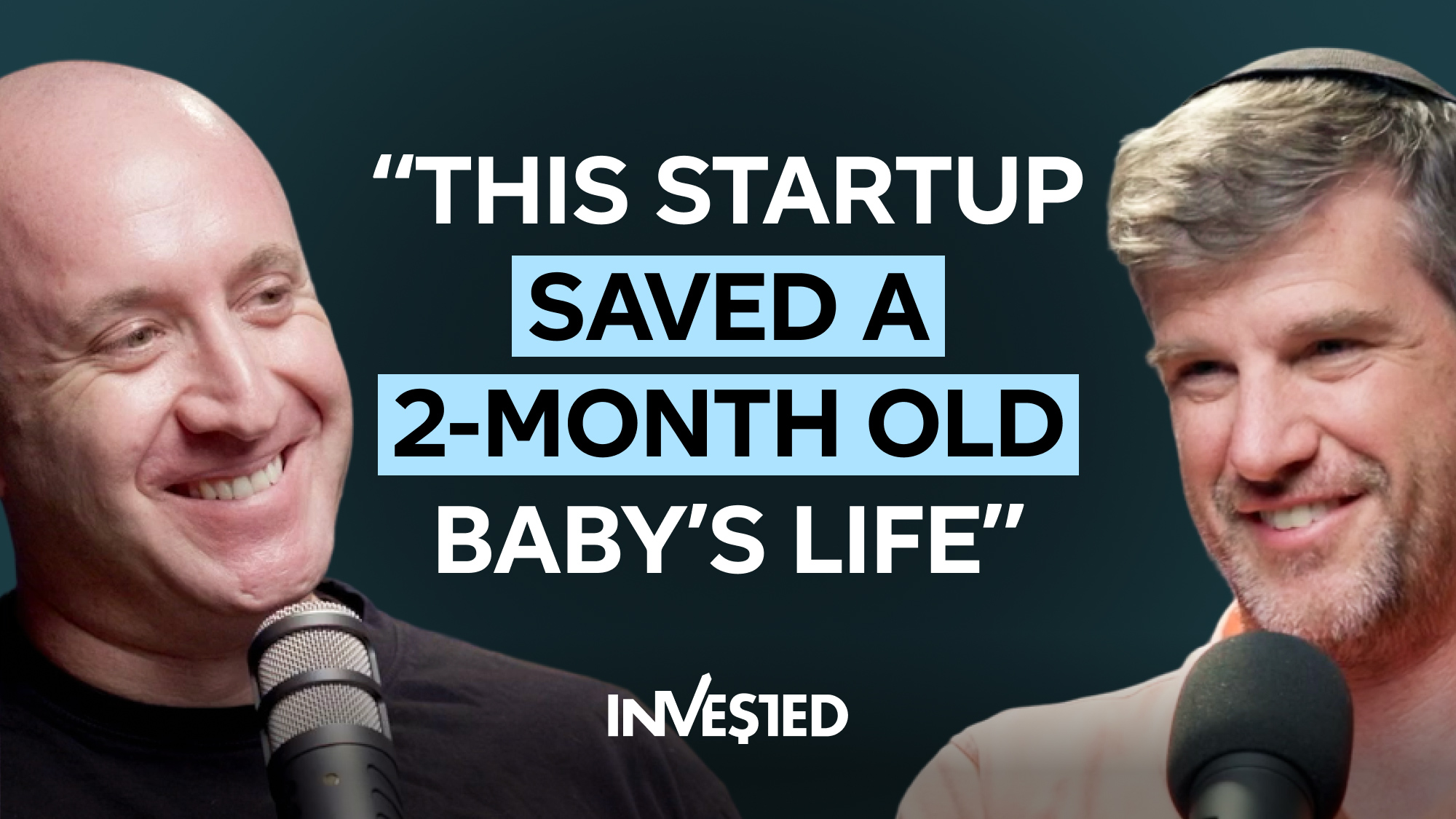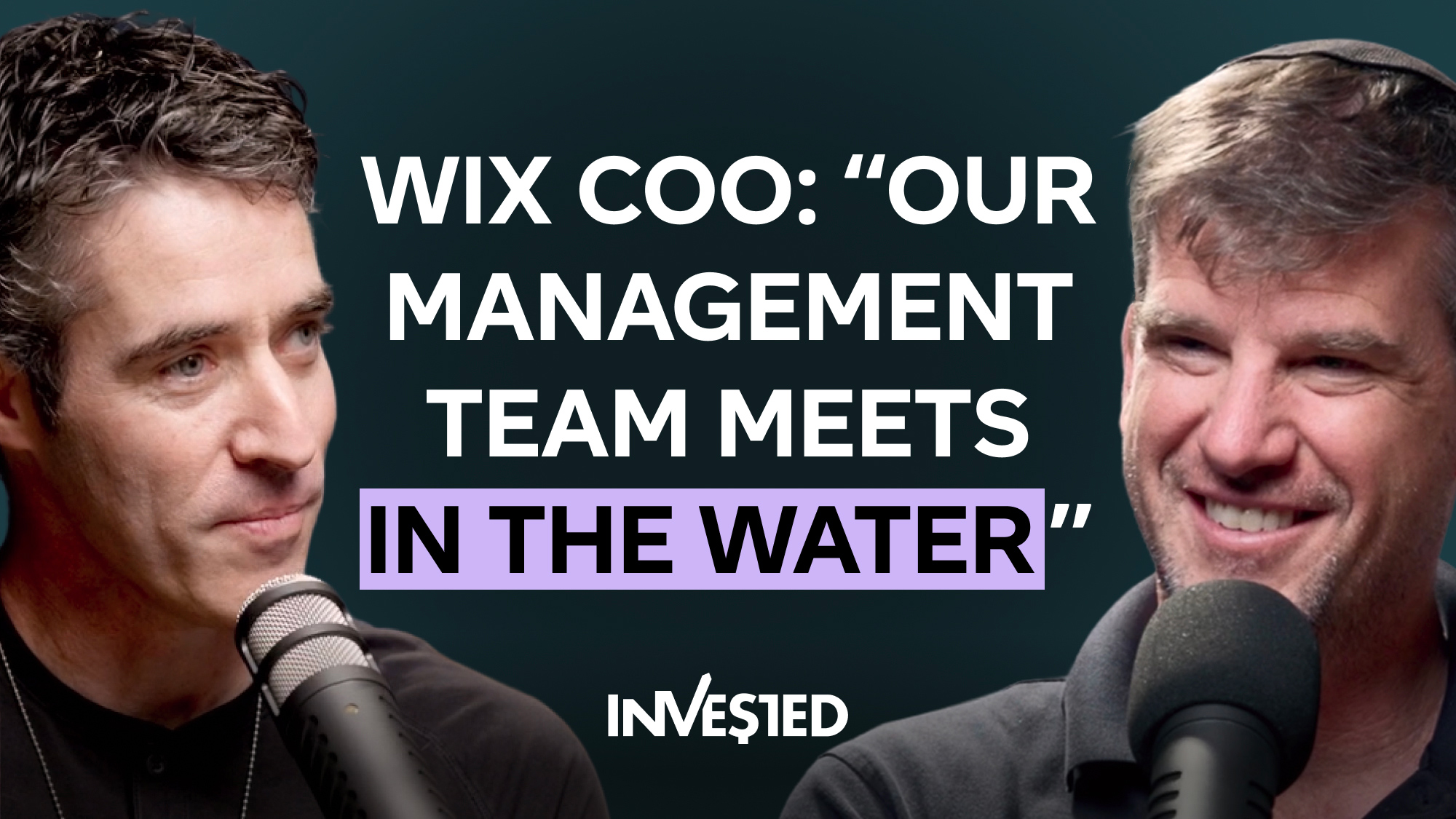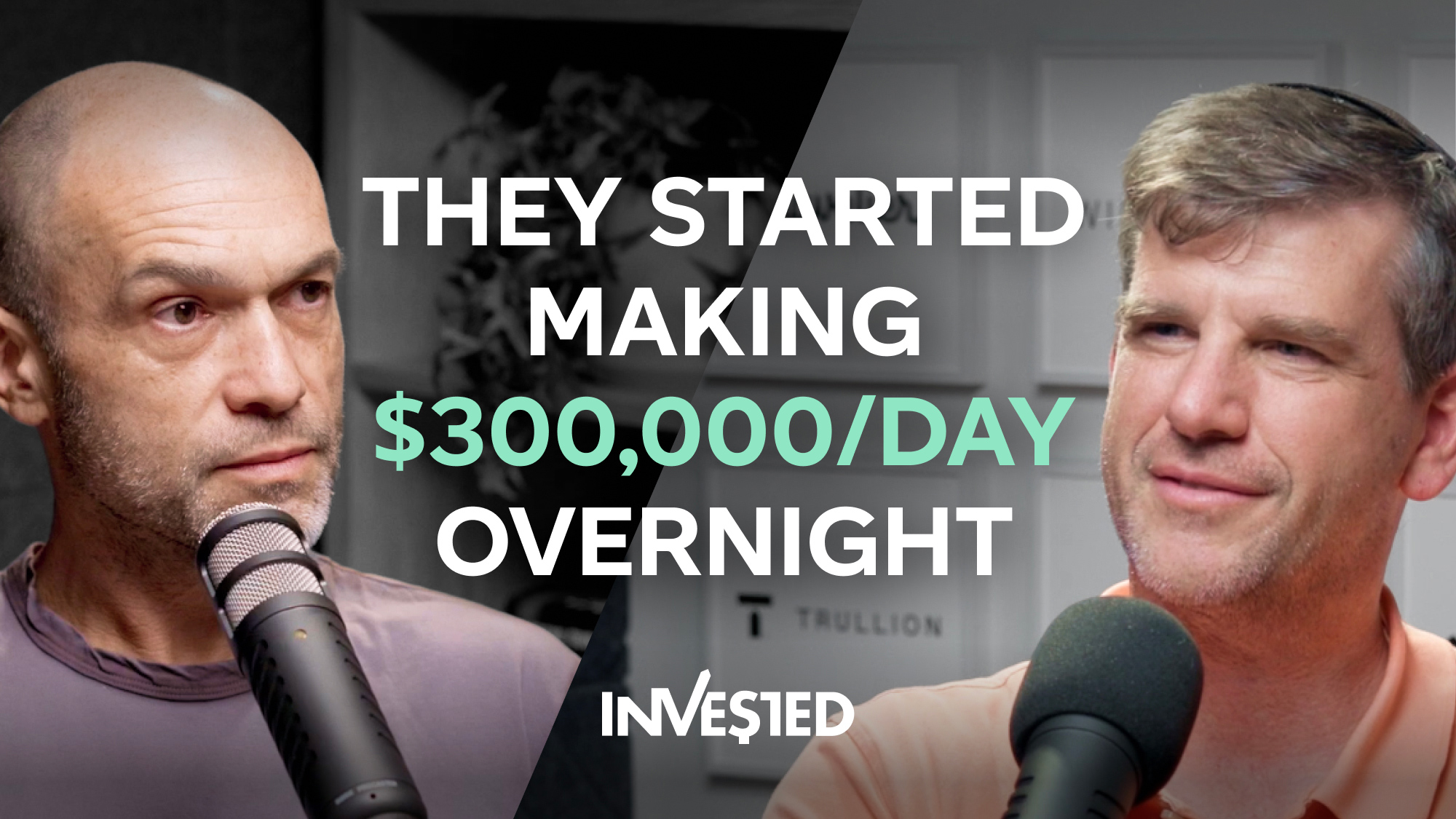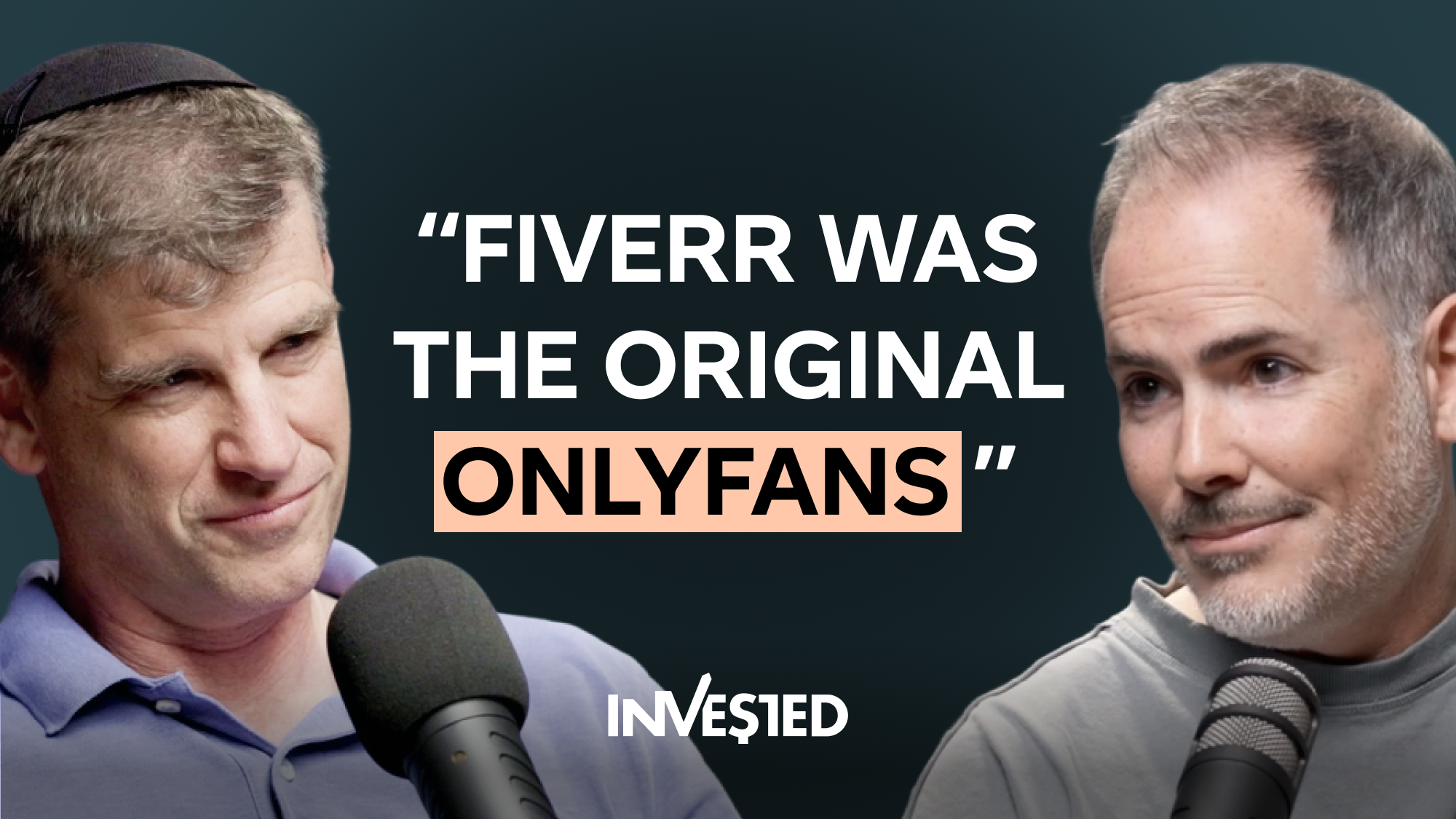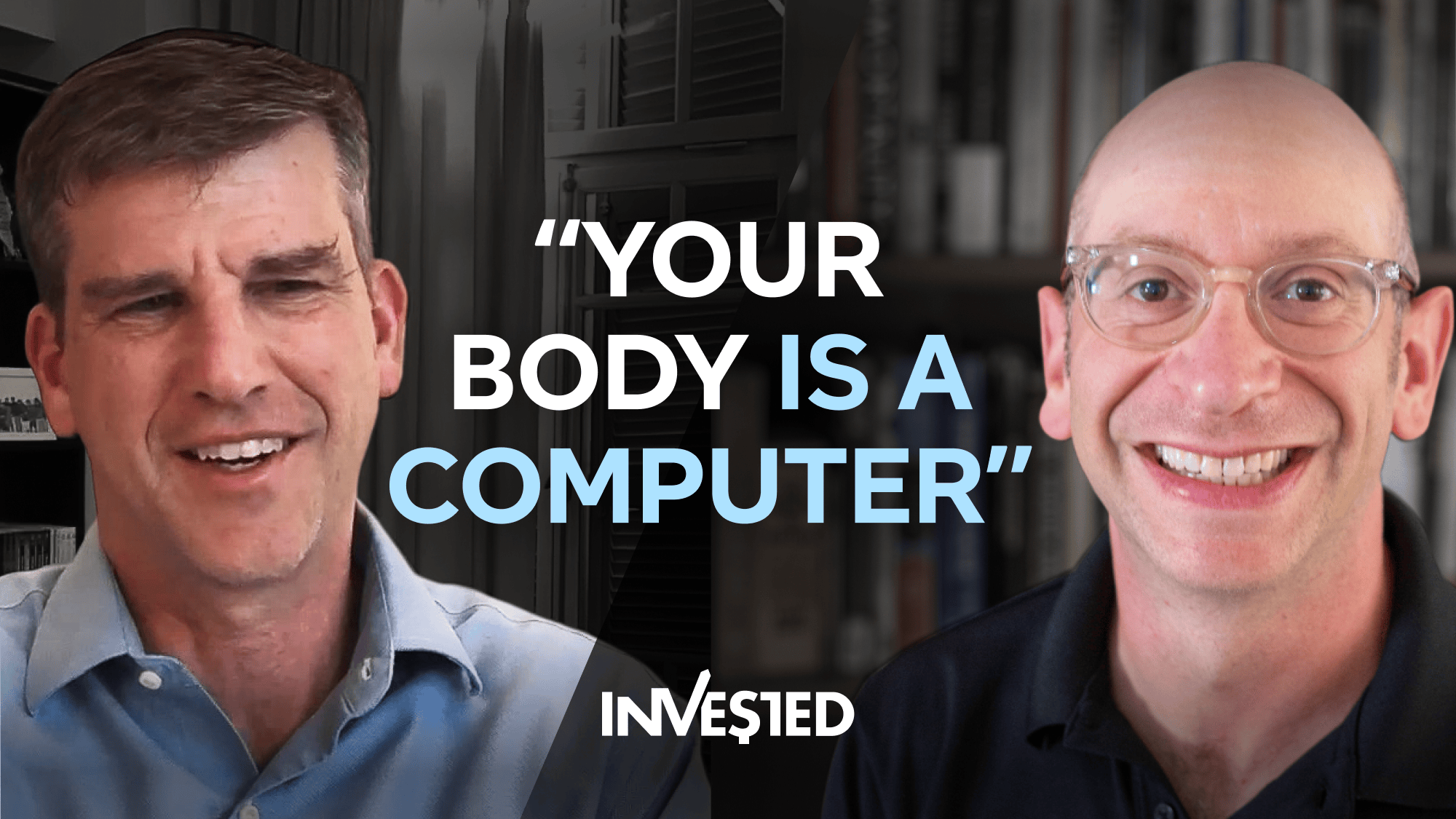TikTok Ban



You can’t go ten minutes without someone talking about AI, but most of the time, it’s hype without substance. Almost Human exists to change that; to dig past the noise and reach the sharp ideas, technical breakthroughs, and human stories that actually shape the future.
Let’s cut through the noise.
TikTok Ban



How can values create value? On this podcast, Michael Eisenberg talks with business leaders and venture capitalists to explore the values and purpose behind their businesses, the impact technology can have on humanity, and the humanity behind digitization.
TikTok Ban
TikTok Ban

TikTok Ban
TikTok Ban
- [00:00:00] Intro
- [00:02:18] Sam Lessin on TikTok as National Security Threat
- [00:02:57] Jacob Helberg on Leading the TikTok Ban Legislation
- [00:05:48] Jon Pelson on Danger of TikTok Content
- [00:07:45] Stefan Tompson on TikTok Vulgarity
- [00:10:32] Barak Herscowitz on TikTok Moderation Problems
- [00:14:17] Izhar Shay on How TikTok Must be Regulated
- [00:16:32] Bradley Tusk on TikTok’s Influence on Young Minds
- [00:18:18] Closing
On this episode of Invested, Michael argues that TikTok needs to be banned, looking back at pivotal discussions from the Invested podcast over the past year with key business leaders, security experts and former TikTok employees.
The guests featured, in order of appearance:
- Sam Lessin, General Partner at Slow Ventures
- Jacob Helberg, Commissioner of the U.S.-China Economic and Security Review Commission
- Jon Pelson, Author of “Wireless Wars”
- Stefan Tompson, Founder of Visegrad 24
- Barak Herscowitz, Former employee of TikTok & Political Advisor
- Izhar Shay, Venture Partner with Disruptive AI
- Bradley Tusk, Co-founder of Tusk Venture Partners
Please rate this episode 5 stars wherever you stream your podcasts!
[00:00:00] Sam Lessin:
The fact that the United States allows TikTok inside of our country is one of the greatest unforced national security issues in, like, the history of the world.
[00:00:08] Jacob Helberg:
TikTok has to divest within a certain window or it will face a ban in the U.S. It almost doesn't matter who's president.
[00:00:16] Jon Pelson:
It weakens America, it weakens unity. That weakens us as a country.
[00:00:18] Stefan Tompson:
It's a very dangerous tool. It's been destroying attention spans, it context-switches you, you're unable to focus. It's sexualized young girls.
[00:00:27] Barak Herscowitz:
TikTok employees supporting not the released hostages, but the released terrorists. And I thought this was crazy.
[00:00:34] Izhar Shay:
This is like giving weapons to your enemies. Somebody walking with a rifle in the street, and you didn't put a regulation against it just because you don't know exactly how a rifle works.
[00:00:43] Bradley Tusk:
Why would we give the Chinese government the ability to manipulate our kids’ minds by something they all have in their pocket already? And that's exactly what's happening! And we did nothing about it.
[00:00:50] Michael Eisenberg:
Today, we are launching a special episode of Invested. It's the culmination of a number of other interviews that we've done throughout the last two years on the topic of China, and specifically, on the topic of TikTok, which is incredibly relevant in the coming days and weeks, and incredibly important for the future of the West and the future of our children who are being mass-influenced by the Communist Party of China's propaganda.
[00:01:20] See TikTok, and its 170 million users in the United States, and its billions of users worldwide, perhaps is the largest PSYOP operation ever conducted globally. NCRI, Network Contagion Research Institute, affiliated with Rutgers University, has published incontrovertible evidence showing how China and the Communist Party manipulates the Tiktok algorithm to influence what our children think about China, to influence who they are and what they are, and it rewires young people's brains based on the TikTok algorithm. This is not an issue of free speech. This is an issue of a foreign influence operation on the entire West, on Israel, on the United States. on Europe, and many other places around the world.
Then I'm asking you, please comment below this post–tell us, do you think TikTok needs to be banned? But as for me, and as you'll hear from our guests, here is exactly why TikTok needs to be banned.
Michael Eisenberg:
Do you worry about the state influencing these mass media platforms in that case and the people who control them to influence public opinion?
Like that's my view of TikTok for what it's worth, right? Which is the state influences. That's TikTok. I'm talking about democracies for a second now, which is like, Twitter, Facebook, et cetera, do you worry about government influence there at all?
[00:02:35] Sam Lessin:
So here's what I basically say. I mean, just, sorry, you and I are both very aligned on TikTok.
Like the fact that the United States allows TikTok inside of our country is one of the greatest unforced national security issues in, like, the history of the world. Like when we rewrite the history of the world in a hundred years or a thousand years, this will be gawked at. Right? As in, like, how could you possibly screw that up? Is what I would say.
Michael Eisenberg:
I agree.
[00:02:57] Michael Eisenberg:
I'll argue that perhaps the most significant thing you've done over the last five years was help to shepherd the TikTok divestment bill through Congress. I think it's a stunning piece of public service for our children, our grandchildren, the United States and the West.
But the question I want to ask you – having stated that – is, do you think it's actually going to be effective? Will it get implemented is probably question one. And question two is, okay, if it's not TikTok, it'll be the next one.
[00:03:29] Jacob Helberg:
I was hugely supportive of this legislation and was over the moon when it passed.
Michael Eisenberg:
You weren’t just supportive. You did incredible groundwork and you've been a thought leader on the topic, and I really admire you for it.
[00:03:43] Jacob Helberg:
Yeah, I was really involved in conversations on Capitol Hill. I approached it like a political campaign, and so I talked to everyone. Republicans, Democrats, it didn't matter what stripes they were from. If they were interested in talking about the issue, I talked to them. I spent a lot of time on Capitol Hill, talked with literally in the hundreds of elected officials in Congress.
So it was incredibly rewarding when this passed, but also it really renewed my faith in our system because there was so much skepticism about whether this bill would pass. People said: It's too late. TikTok is too popular. Congress will never take the political risk of passing something that’s a restriction on an app that's used by 170 million Americans.
And ultimately, the national security arguments won the day–primarily because members of Congress had a foundational question about whether TikTok was controlled by the Chinese Communist Party, and TikTok never satisfactorily answered that question. And it was really because of the substance, and it didn't matter how much money TikTok spent on lobbying.
And so to answer your question about whether I think it's actually going to go through or not–the bill is passed. It's law. What it says is TikTok has to divest within a certain window, or it will face a ban in the U.S. And that's the law. And so it almost doesn't matter who's president. The law is the law, and TikTok is mentioned by name in the law. So it can't try to claim that it's somehow out of scope. And so, they have a finite window now to operate in good faith and pursue an orderly divestiture.
And ultimately, Americans will know very soon if the Chinese government is in it for the money or if they're in it for the influence. If they're in it for the money, they will take the money and allow a divestiture to take place. If they're in it for the influence, they'll choose a ban.
[00:05:49] Michael Eisenberg:
Let's talk about TikTok for a second. So a number of countries want to ban TikTok. Our mutual friend Jacob Helberg has been really pushing for this in the United States. So should America ban TikTok?
[00:05:58] Jon Pelson:
Absolutely. TikTok has two insidious things that it can do. One of them is, it changes who you are. And that's absolute.
Michael Eisenberg:
100%.
Jon Pelson:
You can't argue that. It pushes content to you deliberately and with an agenda, and restricts content from you deliberately and with an agenda. So it is changing what you know, and who you are and how you spend your time. You can't argue that.
[00:06:20] Michael Eisenberg:
By the way, what do you think are the most pernicious, or sociological things that they're pushing on American teens today?
[00:06:29] Jon Pelson:
I think part of what they're doing is pushing such foolish idiocy. Now look, all the old crotchety adults say, “The kids today, it's such idiotic things they’re doing. Back in my day, we used to be doing the frug, and–”
Michael Eisenberg:
And hula-hoop, in the previous generation!
Jon Pelson:
And the hula-hoop. You go back to the thirties, we were doing the 23 skidoo, whatever. So, you know, that's back when things were normal. Now they're weird. So I don't want to play that game here.
But the constant, constant flow of addictive vacuousness, whereas, you know, when I was a kid, you had to wait till Saturday morning cartoons to turn off your brain completely. And now you can keep it in that idling mode, all the time. And I'm sure every generation would have, if they had the same technology available.
Michael Eisenberg:
Do you think they're fomenting some of the social maladies of the United States through TikTok?
Jon Pelson:
I think someone should be fired if they're not. Someone in the Chinese politburo, if they're not using that tool to push people into the streets, when sometimes we’re saying, “What are we here for again?” “I don't know, there’s this bad thing that's going on here. Let's all go out there and turn out for it.” That has to be tapped right now by China, because it weakens America, it weakens unity, whether it's racial or class or any other divisiveness in America, that weakens us as a country.
Michael Eisenberg:
Would you ban TikTok in the West?
[00:07:47] Stefan Tompson:
Yes, I would. And I say this as someone who does use it. Visegrad is on TikTok. We have hundreds of thousands of followers there, generated hundreds of millions of views. And we've done objectively good work there that I'm proud of. Work that has been educational, that has been quality, that has been using good vocab—I mean, even raising the level. Just raising the level of just providing content that is well spoken, well presented, that has some merit. That in and of itself in this absolute ocean of trash, of vulgarity, of swear words, of crassness, of sexualization. Just vulgarity.
That in and of itself was a good thing. But I would. I think it's a tool. I think it's a very dangerous tool. Because it is so addictive. Because it's been destroying attention spans. It context-switches you. You're unable to focus. It sexualized young girls in a very meaningful way, as in–these girls, I think there's a process they go through where they post videos to TikTok, they get some views, and then they realize that slightly more sexual content, more sexualized content, will give them even more views, so there's a dopamine hit, and the algorithm rewards them immediately.
And suddenly you have incredibly vulgar stuff. And the same with the crassness. You do something stupid, and crass, and silly–I don't know, there was a trend of people crawling around shopping malls as if they were a sort of caterpillar. It was bizarre. It was stupid, and it wasn't funny. And it was a public nuisance, but it was generating millions of views. So suddenly you had idiots crawling around shopping malls across Europe. And then you had, obviously, the letter to Bin Laden. How is it possible that in the span of two, three days, Osama Bin Laden is rehabilitated in the mind of Gen Z?
In two, three days! That level of influence on young people that is manipulated–the algorithm is obviously manipulated. And then you see obviously the Chinese version, the Douyin version of TikTok, which is promoting an entirely different algorithm. Every seventh video is a video that is from the CCP.
It's an extraordinary fact that actually, they are making sure that their young people, even though there is the context switch and there's the dopamine rush of every new video you watch. And you always think the next one is going to be–just another one. Right? And they're promoting educational content that they're–
Michael Eisenberg:
They’re sitting at the poker table or the blackjack table. Just one more hand, I'm going to win.
Stefan Tompson:
Just one more hand, I’m going to win. It's exactly that. And it really is. It's a beautifully designed tool.
Michael Eisenberg:
Yeah, it really is.
[00:10:33] Barak Herscowitz:
So we were all in Israel, we were obviously very emotional about this night. You know Michael, I never, never cry. Last time I cried was when my grandmother passed away. It was years ago. That night I cried, I was up basically, I cried for hours, and then someone told me to check something up on the internal system of the TikTok employees. It's called Lark, and I realized that there is an internal group called Palestinian Support.
And I joined it, and I saw that there are TikTok employees supporting not the released hostages, but the released terrorists. Some of them exploded cars, some of them stabbed people on the streets in Jerusalem. And they were celebrating their release, and were so happy and emotional about the release of those Hamas terrorists and other terrorists.
And then I started scrolling back through this group. And I saw that these employees also promote BDS, and supported the Houthis, and they celebrated when the Houthis attacked a lot with missiles, they celebrated and they were happy about it. And this was all on the internal company platform.
So I started to, you know, say, “Who are these employees?” And, you know, I'm going to be very cautious here because my lawyers, they always told me to be cautious. So not a hundred percent of them, but 99.5 percent of them were in Trust and Safety teams, meaning they were in charge of the censorship of TikTok.
They decided what content goes on and what kind doesn't go on. And these are the people who celebrate Hamas, and the Houthis, and BDS. And I thought this was crazy. This was crazy. And I wrote an internal memo to the company, and my initial claim was that there is a bias in policy and bias in content moderation.
And then I added this, screenshots and information about those internal groups, and that Trust and Safety employees who support terrorists and support BDS. And I also mentioned it’s a very hostile environment towards Jews on other TikTok sites. This is something that I haven't personally experienced because I work here in Israel. There aren't any anti-Semites here in Israel, I hope so.
But in other offices, there were many incidents. There were Jewish employees who reported that they came to work after October 7th and no one spoke to them, including their bosses. They were completely ignored by everyone, as non-existent. Or, other employees who received very disturbing anti-Semitic remarks.
I'll give you one example, and I'll try to do it without too many details.
One of them said that they had a team day. And they had some games and, you know, group games. And then one of them, she experienced very harsh remarks about Jews, and money, and being in control of the world, etcetera. And then she reported it to HR and the Ethics office. And she said–it's not something that I experienced, but this is something I saw on Lark, on an open Lark group–she claims that no one ever talked to her, and no one ever dealt with her reports.
[00:14:17] Michael Eisenberg:
How do you think about TikTok, and would it ever occur to you as a minister, which you were, to ban TikTok for that reason?
[00:14:25] Izhar Shay:
So TikTok is a specific example, because it is actually governed by Chinese forces. There's always the assumption that something may be there that is not just biased, but also controlled by some central forces. You know, I hate the word regulation. I hate the notion of regulating the free world, and definitely free press, and the freedom of expressing yourself and so on.
But the worldwide regulation is almost like, I don't know, centuries behind what happened with technology. So the leaders of parliaments around the world have to put their heads and have to first of all understand the potential of these new technologies because this is like giving weapons to your enemies in a country without limiting them, because you do not understand the ramifications.
Somebody walking with a rifle in the street, and you didn't put a regulation against it just because you don't know exactly how a rifle works. Once you know that this rifle has bullets that can kill people, you put regulations as to who is allowed to buy that rifle and forget about freedom of choice and the freedom of movement and so on.
Even if you're allowed to own a rifle, speaking in U.S. terms, you are not allowed to walk the streets of New York and to shoot people.
So you have to put regulations on social media that will prevent the same kind of damages. And we know today that using social networks - this is not about TikTok, you have all kinds of possible ramifications also on fake profiles, and the spread of traveling news and other types of media pieces on Telegram and other social networks. So the regulators have to understand the dangers and have to respond accordingly.
By the way, we know today that Israel was attacked many times over the last few years on social networks, on Facebook, on Telegram, on Twitter, obviously on TikTok as well, by very specific enemies, using all kinds of targeted psychological weapons in order to affect the society here. So this is not just a theoretical situation. The regulators have to respond, have to understand and do this rather quickly.
[00:16:34]
Michael Eisenberg:
Speaking of social media, what do you think should be done with TikTok?
Bradley Tusk:
Ban it. I mean, not even a question. I was for banning TikTok long before October 7th. And there was a poll today in The New York Times that showed Trump beating Biden among young people, and I directly attribute that to TikTok.
TikTok has been so blatantly pro-Hamas, pro-Palestinian, anti-semitic, anti-Israeli, that it has wildly changed perceptions in a completely misguided way among American youth, and that has changed the political dynamic here meaningfully. And you know, it's funny, a couple years ago when Trump started talking about it, and he was right at the time, but he never follows through on anything. It was, you know, everyone was like–why would we give the Chinese government the ability to manipulate our kids’ minds by something they all have in their pocket already? And that's exactly what's happening. And we did nothing about it. And we're doing nothing about it.
And this again, gets back to sort of the mobile voting thing, which is, we're so polarized that we can't function any longer. You know, forget about appropriating more aid to Israel, which Washington's now having to do through executive powers because they can't get Congress to act in any way. Even stuff that's happening here domestically that's destroying our own kids’ minds. And whether that's how social media has driven teen suicide up by 200%, or the influence of TikTok right now–we can't do anything about it, because we're too divided.
And I think that either one, we come back together. And that happens through technology and through mobile voting, or two, to your point, I just think that it's much sooner than 2050–states start seceding, right. And there could be a world where you say, you know what, we can't get anything done in the U.S., the current system is completely broken. A national divorce makes sense. Let's have something more like the EU.” That may be the way to go.
[00:18:19] Michael Eisenberg:
All of my guests think that TikTok should be banned. But I want to hear what you have to say. Do you think TikTok should be banned? Please comment below. Thank you so much for listening to this episode on this very critical topic. If you liked the episode and liked the podcast and want more like this, please rate us five stars on Spotify, Apple podcasts or YouTube. Comment on our YouTube posts so that we can keep delivering you this super important content.
Follow Sam on X
Follow Jacob Helberg on X
Follow Jon on X
Follow Stefan Tompson on X
Follow Visegrad24 on X
Follow Barak on X
Follow Izhar Shay on LinkedIn
Follow Bradley Tusk on Linkedin
Subscribe to Invested
Learn more about Aleph
Subscribe to our YouTube channel
Follow Michael on Twitter
Follow Michael on LinkedIn
Follow Aleph on Twitter
Follow Aleph on LinkedIn
Follow Aleph on Instagram
Executive Producer: Erica Marom
Producer: Yoni Mayer
Video and Editing: Ron Baranov
Music and Art: Uri Ar
Content and Editorial: Kira Goldring
Design: Rony Karadi
Follow Sam on X
Follow Jacob Helberg on X
Follow Jon on X
Follow Stefan Tompson on X
Follow Visegrad24 on X
Follow Barak on X
Follow Izhar Shay on LinkedIn
Follow Bradley Tusk on Linkedin
Subscribe to Invested
Learn more about Aleph
Subscribe to our YouTube channel
Follow Michael on Twitter
Follow Michael on LinkedIn
Follow Aleph on Twitter
Follow Aleph on LinkedIn
Follow Aleph on Instagram
Executive Producer: Erica Marom
Producer: Yoni Mayer
Video and Editing: Ron Baranov
Music and Art: Uri Ar
Content and Editorial: Kira Goldring
Design: Rony Karadi

